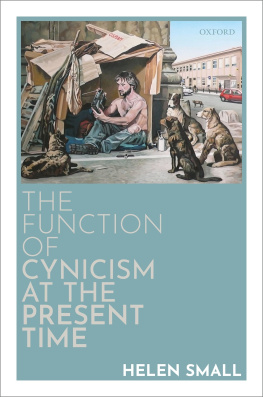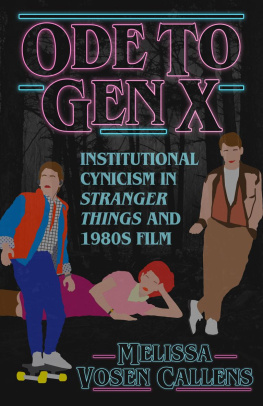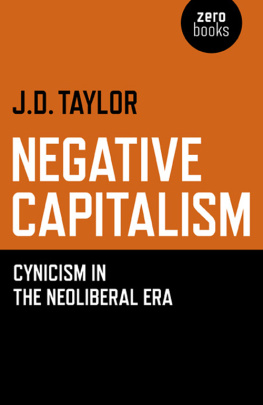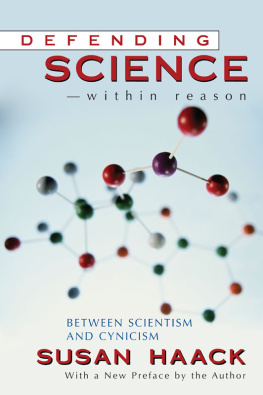The Function of Cynicism at the Present Time

Great Clarendon Street, Oxford, OX2 6DP, United Kingdom
Oxford University Press is a department of the University of Oxford. It furthers the Universitys objective of excellence in research, scholarship, and education by publishing worldwide. Oxford is a registered trade mark of Oxford University Press in the UK and in certain other countries
Helen Small 2020
The moral rights of the author have been asserted
First Edition published in 2020
Impression: 1
All rights reserved. No part of this publication may be reproduced, stored in a retrieval system, or transmitted, in any form or by any means, without the prior permission in writing of Oxford University Press, or as expressly permitted by law, by licence or under terms agreed with the appropriate reprographics rights organization. Enquiries concerning reproduction outside the scope of the above should be sent to the Rights Department, Oxford University Press, at the address above
You must not circulate this work in any other form and you must impose this same condition on any acquirer
Published in the United States of America by Oxford University Press
198 Madison Avenue, New York, NY 10016, United States of America
British Library Cataloguing in Publication Data
Data available
Library of Congress Control Number: 2019957935
ISBN 9780198861935
ebook ISBN 9780192606525
Printed and bound by
CPI Group (UK) Ltd, Croydon, CR0 4YY
Links to third party websites are provided by Oxford in good faith and for information only. Oxford disclaims any responsibility for the materials contained in any third party website referenced in this work.
Preface
It is not unusual for a book of cultural criticism to reflect its time of writing. Indeed, any historical or political approach to reading will assume that it doesthe relevant questions being how consciously and with what advantages or limitations of perspective. This book began in 2011, with an essay on George Eliots cynicism, but it has taken its final content and form over the past three years, 201619. The engagement with contemporary politics is (with the partial exception of ) at a remove, but the subject matter, modern cynicism, and the dominant preoccupations of the studyabrasive styles of public argument, debasing challenges to conventional morality, free speech, moral controversialism, the authority of reason and the limits of that authority, nationalism and resistance to nationalism, freedom of expression within the university generally and the Humanities specificallyare evidently topical. When I began writing, the tenor of public discourse around the world was already changing rapidly; it has become distinctly more acrimonious in the three years since. Neither American friends, as Matthew Arnold liked to say, nor European ones need reminding of how difficult the challenges of representative democracy have become, nor of the ease with which supposedly liberal cultures of public argument coarsen or fail.
In taking as my subject the function of cynicism at the present time, I am looking to cast light on the question of how moral and cultural ideals keep (or indeed, find) their value for people as those ideals come under pressure from political, social, and sometimes personal circumstances unamenable to any version of idealism that pitches too high. Cynicism, in the modern period, may keep contact with the ancient form of lived philosophy from which it takes its name, but it is also a common aspect of human psychological functioning, open to a normative description. In the forms in which it interests me most, it entails a capacity for tuning up the aggression of ones intelligence that offers to give edge, darkness, but also pleasure to the act of challenging conventional agreements on moral life. I treat cynicism, accordingly, as both a philosophical and a psychological phenomenon, repeatedly leading one back to the question of the relationship between these two disciplines. Underpinning all, I have a literary critics concern with the stylistic means by which cynicism achieves its ethical effects. The debasing of normative judgements and conventional moral agreements is, and has always been, an effect of speech that oversteps the perceived bounds of licence. The characteristic features of that oversteppingverbal impudence, shamelessness, biting wit, circulating anecdote, vulgarization in all its linguistic formsenable cynicisms anti-institutional forms of charismatic authority. In looking to chart the operations of cynicism at the level of style as well as argument, I own to some susceptibility to cynic flair. The original cynics would not have survived were it not that charisma opens the door to tolerance.
I look to provide a more thorough account than has yet been offered of how far, and to what ends, Nietzsches sceptical realism was fashioned with an eye on Cynic styles of argument. Starting with the reappearance of Diogenes of Sinope in The Gay Science, I explore the histrionic characterization of the tolle Mensche and his untimeliness in ways that open up Nietzsches sense of the typology and stylistic gambits of Cynicism as helpful but inadequate models for the lived practice of philosophy. I then focus on how Cynicism helps to drive Nietzsches thinking in two main respects: (i) his efforts to articulate what may be required to break the hold of convention, to be free-spirited in ones philosophizing and fashion a philosophical style in the assumption of that freedom; and (ii) the important role of Cynicism in the articulation of the genealogy of morality.
I put Nietzsche first, though he disrupts the chronology, because he is the great philosophical writer of strategic Cynicism. But he is also of help to me because he offers a famously unflattering sidelong view of British writing about morality in the generation or two before him. With his caustic assessments (of Carlyle, Mill, Eliot, among others) in view, I then look before and after him, in , Speech beyond Toleration: Moral Controversialism (Then and Now) treats one of the great confrontations in the history of British public moralism between cynical provocation and a more responsible approach to free speech: Thomas Carlyles deliberate offences against progressive sentiment in his Occasional Discourse on the Negro Question (1849) and John Stuart Mills swift and uncharacteristically angry response. Nietzsche (in pursuit of higher values and still freer speech) thought that Carlyle did not go nearly deep enough in the challenges he posed to conventional political moralitybut the Occasional Discourse went far enough to make Carlyles own name a byword, still, for moral and political provocateurship. I argue that his cynicisms and Mills astringent reply provide a helpful historical basis from which to consider similar challenges today to normative views of public argument and styles of expression.
The central chapter, , turns to the terrain of cultural criticism, with a more literary focus. It develops an account of the attraction of Arnoldian criticism (with its free play of ideas) to the strong ironies, comic flair, and sarcastic turns of cynicismmodes of argument that challenge and assist Arnolds critical authority, and that become the subject of his most explicit critical reflection when he writes about a German literary cynic, of the generation before him, for whom he had a keen affection: Heinrich Heine. I trace the process by which the kinds of scoriating cynicism that Arnold admired and (finally) found wanting in Heine became components of the style and content of his own public moralism, increasingly targeted to the work of describing and attacking the opponents of culture. The final section of the chapter considers a late reanimation of Arnolds cynicisms in the context of his encounters with American democratic culture.









